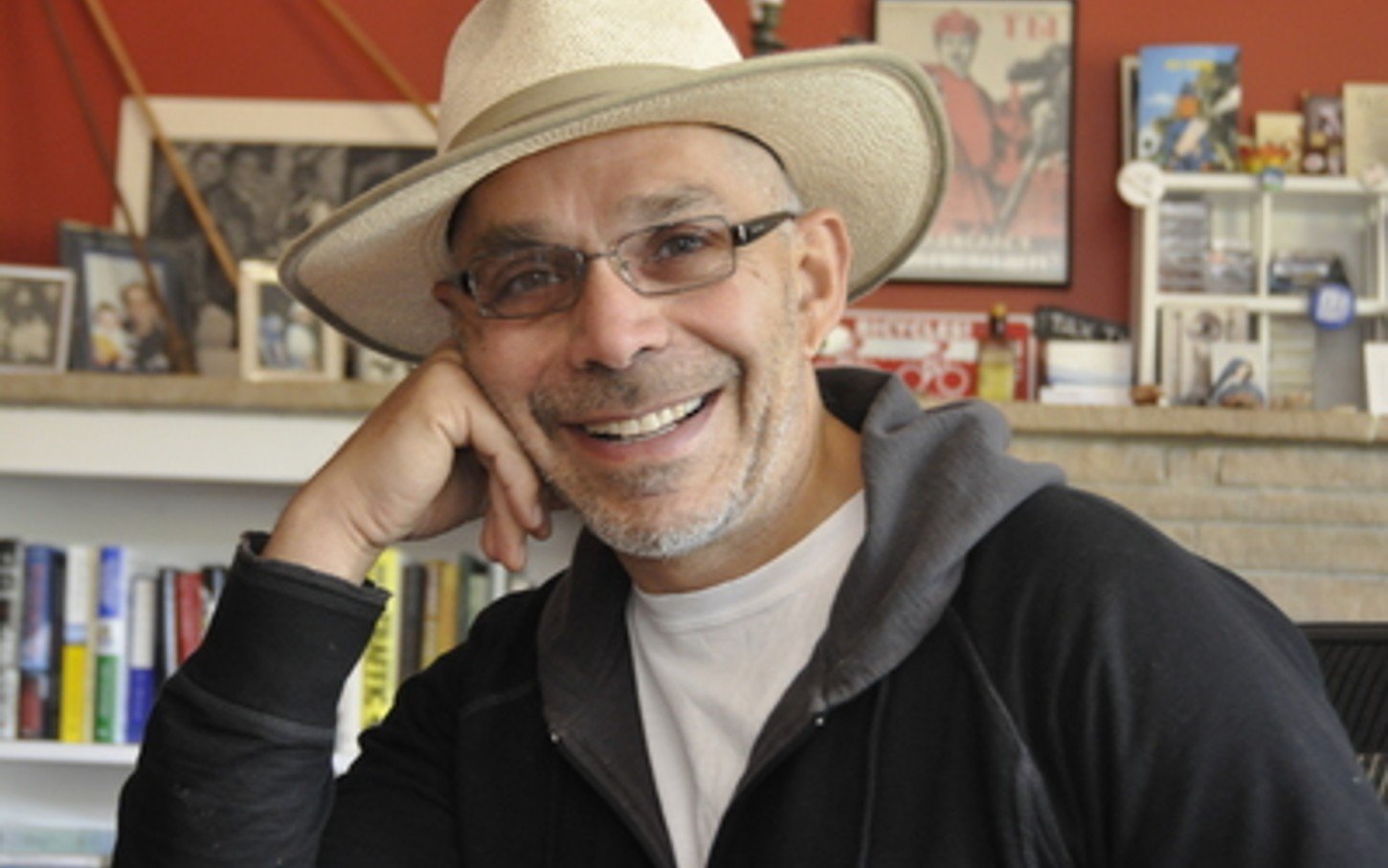In the wake of a catastrophic US election, in which the climate emergency barely registered, the immediate question on many minds is what a second Trump presidency will mean for the climate fight in this country.
But with the 29th annual United Nations climate conference, COP29, underway in Baku, Azerbaijan, this is an excellent moment to remember that the climate crisis is in fact a global crisis—which can be addressed only at the global level. And despite the modicum of progress under Joe Biden and the stunning acceleration of ever-cheaper renewable energy at home and abroad, the news on the global front has been, shall we say, discouraging. Fossil fuel extraction and consumption continues to expand globally. The 2024 Emissions Gap Report from the United Nations Environment Program spells out the world’s failure, after 30 years of international negotiations, to bend the global emissions curve downward at all; CO2 emissions are still at record levels (with revised temperature projections to show for it) when they need to be plummeting toward zero.
What will it take to turn this around? We’ve long known the answer: a transformative political shift to enable a rapid phaseout of fossil fuels globally—and a whole lot of money, otherwise known as “climate finance,” to fund the energy transition, adaptation, and loss-and-damage in the developing world. Now, climate finance is, at last, taking center stage in Baku, where the negotiations are intended to pave the way for an all-important agreement at COP30 next year in Brazil.
It’s hard to overstate the complexity—and necessity—of achieving a breakthrough on global climate finance. And it’s hard to think of anyone better to explain it than Tom Athanasiou, the coordinating lead author of the latest annual report of the Civil Society Equity Review, released at COP29 on November 15. A leading researcher and campaigner for global climate equity, Athanasiou has been at this work for decades and did much to bring the concept of Fair Shares into the climate justice lexicon.
The new report lays it on the line with stark clarity: The world will never close the emissions gap until the Global North steps up and closes the climate finance gap—to the tune of trillions of dollars per year to the Global South. This is the essence of climate justice—and, the report argues, climate realism.
Advocating both urgent near-term actions on climate finance and longer-term (but still urgent) systemic changes necessary for global justice—debt cancellation, reparations, a radical restructuring of global trade, and more—the report emphasizes what is feasible right now: the major sources of public climate finance that can be mobilized relatively quickly. To name a few: Ending direct fossil fuel subsidies globally could free up $1.7 trillion per year. A “featherweight” international wealth tax of 0.5 percent on the world’s richest people could yield $2.1 trillion annually. Financial transaction taxes could bring in another $1 trillion. Reform of special drawing rights for developing countries could open up $500 billion per year in concessional finance. To put these numbers in perspective, global GDP is well over $100 trillion.
The money is there. Unlocking it to end fossil fuels—as fast and equitably as possible—may be the most consequential political task the world has ever faced. That task got harder on November 5, and there’s much that Trump can do to obstruct and delay. But with or without the United States for the next four years, Athanasiou told me, real progress by the rest of the world still can, and must, be made.
I spoke with Athanasiou on November 1 and again on November 6. The interview has been edited for length and clarity.
Wen Stephenson: The question on every climate-conscious person’s mind right now is what another four years of Donald Trump means for the climate emergency. What progress can be made, at the international level, without the US?
Tom Athanasiou: The first thing I want to say is, in terms of COP29—as opposed to the whole future of multilateral negotiations and global cooperation—this election is clearly a big deal. The issue is protectionism, China and trade, border taxes. Everybody knows Trump will pull out of the Paris Agreement—that’s a done deal.
But the single most important thing to stress is, it’s not like the United States today, under Biden, is a helpful actor in the negotiations. It’s not like the US has been guiding us towards an international regime that could engage the crisis at the proper scale. It hasn’t been. So the difference now is salient and real, but it’s not a black-and-white difference.
WS: But is there any hope of a breakthrough, without the US, at COP29? Or next year at COP30 in Brazil, where new ten-year commitments on emissions will be made, and, just as important, finance?
TA: Yes. It’s easy to tell a story in which the odds of a breakthrough at COP30 next year have increased. You have to remember that Brazil’s Lula is putting a certain amount of political capital into trying to negotiate a finance breakthrough at COP30. You have to remember that Mia Motley, the PM of Barbados, and an assortment of other international leaders—Kenya, France, Norway sometimes—are continuing to work on the Bridgetown Initiative. You have to realize that Trump’s threatened withdrawal from the Paris Agreement will create an opportunity for the Chinese to step to the fore and do something dramatic.
So this election could be an event that builds enough of a fire under other parties that they actually come up with something in the Brazil COP30 timeframe that’s substantive enough to move the needle. Macron has invested a lot of his fading political capital in some sort of tax deal. The UN adopted, a couple months ago, a framework convention on international taxation, and that was a very big deal because it means the taxation negotiations are going to take place in the UN instead of the OECD, which is completely controlled by the United States and Germany.
And the need for a different kind of multilateralism—a more muscular climate multilateralism—is only going to be increased by this election. And it’s already in motion. It’s not like we’re talking about something that’s only in our dreams—there’s already a lot of people who are trying to put it together.
WS: So it could be a fluid moment.
TA: It is a fluid moment. We expected COP29 to be a train wreck anyway, but coming off of Trump, it wouldn’t be a surprise if something positive happened.
WS: Creative destruction?
TA: You have to hope for some creative destruction.
WS: For me, the real money quote of this new CSER report is buried deep in the document, in the section on mobilizing the necessary global funding to close the climate finance gap:
The Global North’s negotiators are refusing to engage with numbers of this scale, and by so doing are playing a very dangerous game. They imagine themselves realists.… True realism lies in the recognition that we actually have the money to save ourselves, and that the reallocation and redistribution of that money is now an existential necessity.
Can you unpack that a bit, and explain how it relates to equity?
TA: First, I want to make a really big point of the fact that we have the technology, the science, and the money to save ourselves. It’s not a technology problem; it’s a political problem. I always say, we only need two things to save humanity and civilization: The first one is a thoroughgoing green technology revolution—and we have it. The second is a high-cooperation world. And the problem is, you cannot have a high-cooperation world at this level of global inequality.
That, for me, is the core not only of climate realism but of social-ecological realism. In order to be able to cooperate effectively—and this is now well established by all the inequality work that has happened over the last 20 years—we need to be able to redistribute wealth. To me, that’s the basic precept of climate realism.
All of this is coming to a head, and the reason is, it’s now impossible to imagine a politics of climate transition that doesn’t take account of rich and poor within countries as well as Global North and Global South. I talk all the time about a “twice divided world”—you have the North and South and you have the rich and the poor. And if we’re going to talk about wealth taxation, for example, then we have a problem, which is the fact that there are large numbers of extremely wealthy people in the Global South. The bulk of the global 1 percent is still in the Global North, but you cannot ignore the one percenters in the Global South.
So this is a “come to Jesus” moment for the global climate movement. The movement has to have a politics that accounts for the rich/poor divide within the Global South.
WS: The report looks at these “global classes,” and how wealth correlates to emissions. But there’s also the political footprint of the rich. The inequality within countries translates into political obstacles. So is there a political shift that has to take place within the Global South as well as the Global North? And is this a difficult point to raise?
TA: That’s a good question. I mean, the problem of class hierarchy within the Global South is not particularly difficult to talk about. Everybody knows that these countries are highly stratified—just as stratified, in some cases more, in some cases less, as the countries of the Global North. The problem is that as long as the politics of post-colonialism completely dominates the lens through which the climate left sees the global transition problem, all you can see is the North/South part of the divide. But you have to be able to see the rich/poor part as well. The numbers show that. If you talk about wealth taxes, again, you very easily get to where you have enough money to finance the climate transition. We really have enough money—which is to say, the global wealthy really have plenty of money squirreled away in their havens.
All of this is being forced by the climate crisis. We can’t put this off anymore. And the reason is phasing out fossil fuels globally. We have to have a very sophisticated and strategic global movement aimed at phasing out fossil fuels. And that movement cannot allow itself to be trapped in a Manichaean North/South political frame. It has to have a sense of a twice-divided world in which rich/poor is just as important as North/South. Otherwise you’re basically going to back yourself into a corner where the Saudis and the Emiratis get a pass.
WS: What is the current state of the climate finance gap—between what’s been promised and what’s actually needed, in terms of both public and private funding?
TA: When we have the finance conversation, we have to stipulate from the beginning that we’re going to talk about scary numbers. And we have to be clear, are we comparing these numbers to the kinds of numbers that are actually, potentially, realizable within the United States congressional appropriations process as we know it today? Or in comparison to the amount of money there actually is in the global capitalist system today? Two very different frameworks of comparison.
Kelly Stone, one of the policy analysts at ActionAid USA who I’ve worked with for years—she worked on the US Fair Shares NDC that a group of us wrote last year, in which we calculated that what the US should be offering in Baku, if it was offering its fair share, would be $446 billion a year. What she actually hoped to be able to get in a Harris administration, if the election went well, was maybe $15 billion.
WS: The Global North countries committed to $100 billion a year to finance both the energy transition and climate adaptation.
TA: And that’s from all sources, both public and private.
WS: And they haven’t met even that.
TA: No. There’s been a lot of funny accounting.
WS: Just for the shock effect, what are the round estimates of what would be required today, with fairness and equity in mind? It’s an order of magnitude, at least, higher than the status quo, right?
TA: Right. And this got very, very difficult within the global climate movement in the past year. Radical activists from the Global South, who are mostly in the organizational umbrella of Demand Climate Justice, want $5 trillion a year. They talk about ecological debt, about the ongoing unfair terms of trade between North and South, about global reparations and the hangover of colonialism.
And what we agreed to call that, within this movement debate, is the “Moral Barometer.” The $5 trillion is what the moral barometer tells us the number should be. But to be clear, a lot of the people who advocate for numbers on that scale are talking about all sources, including private investment flows.
But there’s another number—$1 trillion—calculated in a bottom-up way, based on needs assessment processes that are informed by local and regional conditions. That number came out of the finance working group of the Climate Action Network International, which is historically more center-left but is now moving into more radical spaces as the post-colonial frame has become more influential. And the $1 trillion number comes from that quantitatively rigorous process, and it’s very tightly stipulated to be public grant or grant-equivalent funding, not investment flows or private capital. So those are the two numbers.
Popular
“swipe left below to view more authors”Swipe →
My view, and the view of many people, is that the $1 trillion, grant-based, is what we should be focusing on. If you look at the numbers that attempt to quantify adaptation costs, just transition costs—particularly in the fossil-fuel phaseout—and loss-and-damage costs, well, that number is still going to be too small, but at least it’s at the right scale. All the various Southern negotiating blocs have essentially tabled numbers that are in this area, around a trillion dollars.
The United States and the rest of the Global North won’t put a number on the table. So we don’t know what will happen in Baku. I expect it to be a train wreck, but the real showdown is COP30 in Brazil.
And I would argue that, in parallel to this train wreck and coming showdown—let’s imagine it’s going to be three to five years—we have to educate the broader climate movement, the movement of millions of people, not thousands, to the fact that we do have the money and that these numbers are reasonable.
WS: The US climate movement is almost entirely focused on US domestic emissions and building out renewables in this country. You wrote a piece for The Nation about Bernie Sanders’s 2020 campaign and the importance of US foreign policy for climate. And Bernie got it.
TA: Bernie got it.
WS: So, how can US domestic climate politics come into play—if they’re ever going to—in a way that’s helpful to the global process?
TA: This is such a huge question. First, let’s get the name of the challenge here right. The name of the challenge here is internationalism. And from the perspective of the US left, the challenge we have now is authoritarian nationalism. That suggests that the reconstruction of the left, which now has to go into a new phase, will have to engage the challenge of internationalism in a more explicit fashion than it has in the past. And this connects to the problem, which you absolutely correctly point out, that the US climate movement has been unhelpfully over-focused on domestic emissions, as opposed to American responsibilities and capacities in the context of the planetary crisis. The whole point of Fair Shares is that when you run the numbers, in a country like the United States—high in capacity and high in historical responsibilities—the US fair share [goes beyond] US domestic emissions.
WS: In other words, on a graph it goes below zero, because of our responsibility—both morally and in terms of economic and political realism—to not only decarbonize our own economy but also help fund the transition in the Global South.
TA: Exactly. And that was the point of the Sanders piece. We explained that to Sanders’s people and they ran with it. If I went to my grave tomorrow, we have at least accomplished that, we got that idea on the table: The US fair share is greater than US domestic emissions. And the only way for the US to do its fair share is to act really, really strongly within its own borders and also, equally, act really, really strongly internationally.
We cannot back down
We now confront a second Trump presidency.
There’s not a moment to lose. We must harness our fears, our grief, and yes, our anger, to resist the dangerous policies Donald Trump will unleash on our country. We rededicate ourselves to our role as journalists and writers of principle and conscience.
Today, we also steel ourselves for the fight ahead. It will demand a fearless spirit, an informed mind, wise analysis, and humane resistance. We face the enactment of Project 2025, a far-right supreme court, political authoritarianism, increasing inequality and record homelessness, a looming climate crisis, and conflicts abroad. The Nation will expose and propose, nurture investigative reporting, and stand together as a community to keep hope and possibility alive. The Nation’s work will continue—as it has in good and not-so-good times—to develop alternative ideas and visions, to deepen our mission of truth-telling and deep reporting, and to further solidarity in a nation divided.
Armed with a remarkable 160 years of bold, independent journalism, our mandate today remains the same as when abolitionists first founded The Nation—to uphold the principles of democracy and freedom, serve as a beacon through the darkest days of resistance, and to envision and struggle for a brighter future.
The day is dark, the forces arrayed are tenacious, but as the late Nation editorial board member Toni Morrison wrote “No! This is precisely the time when artists go to work. There is no time for despair, no place for self-pity, no need for silence, no room for fear. We speak, we write, we do language. That is how civilizations heal.”
I urge you to stand with The Nation and donate today.
Onwards,
Katrina vanden Heuvel
Editorial Director and Publisher, The Nation
More from The Nation

The party continues to operate in an overcredentialied fever dream in the face of an America becoming ever more red in tooth and claw
John Ganz
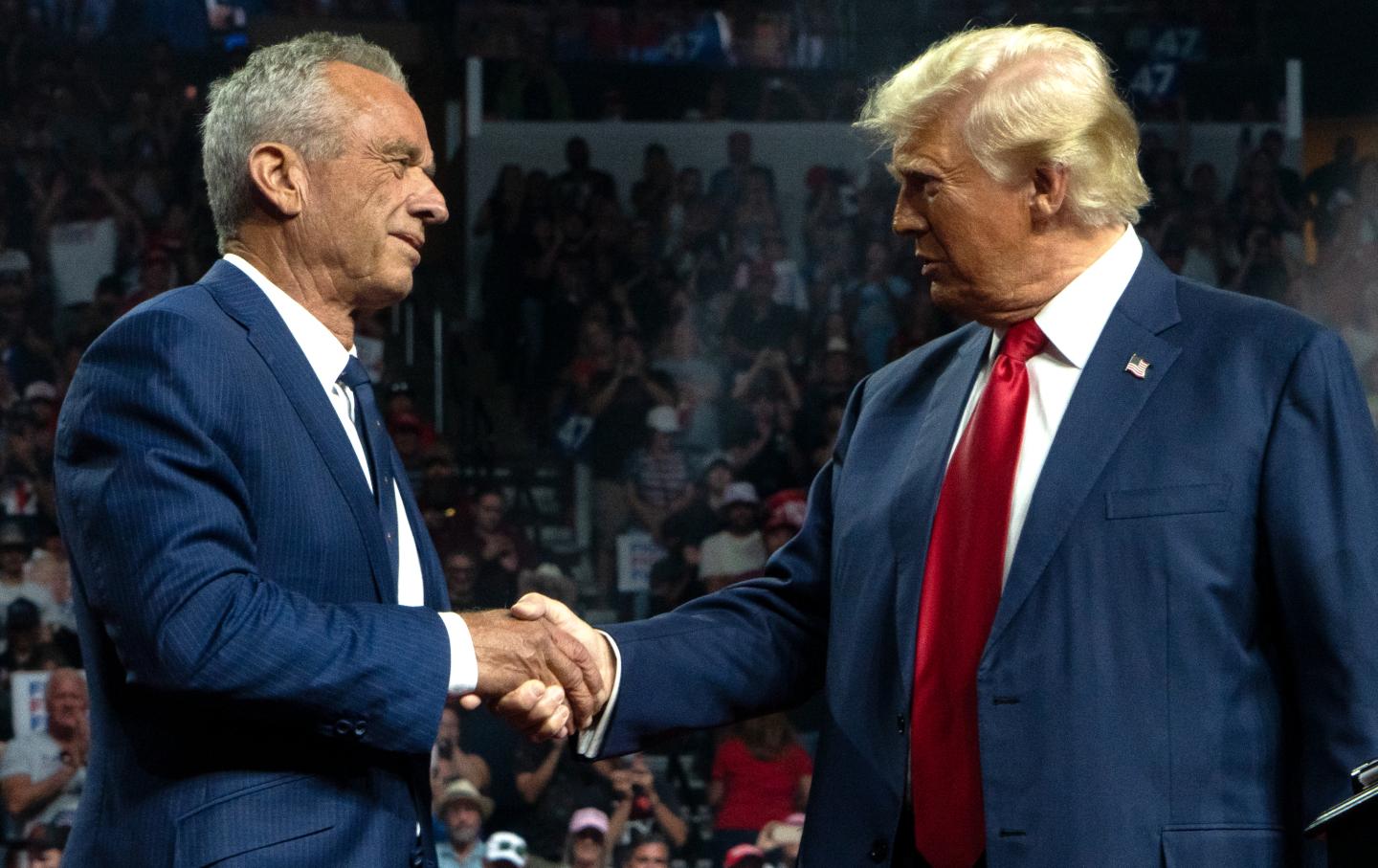
These freakish and unqualified cabinet picks, from RFK Jr. to Matt Gaetz to Tulsi Gabbard, show that Trump is clowning you.
Joan Walsh
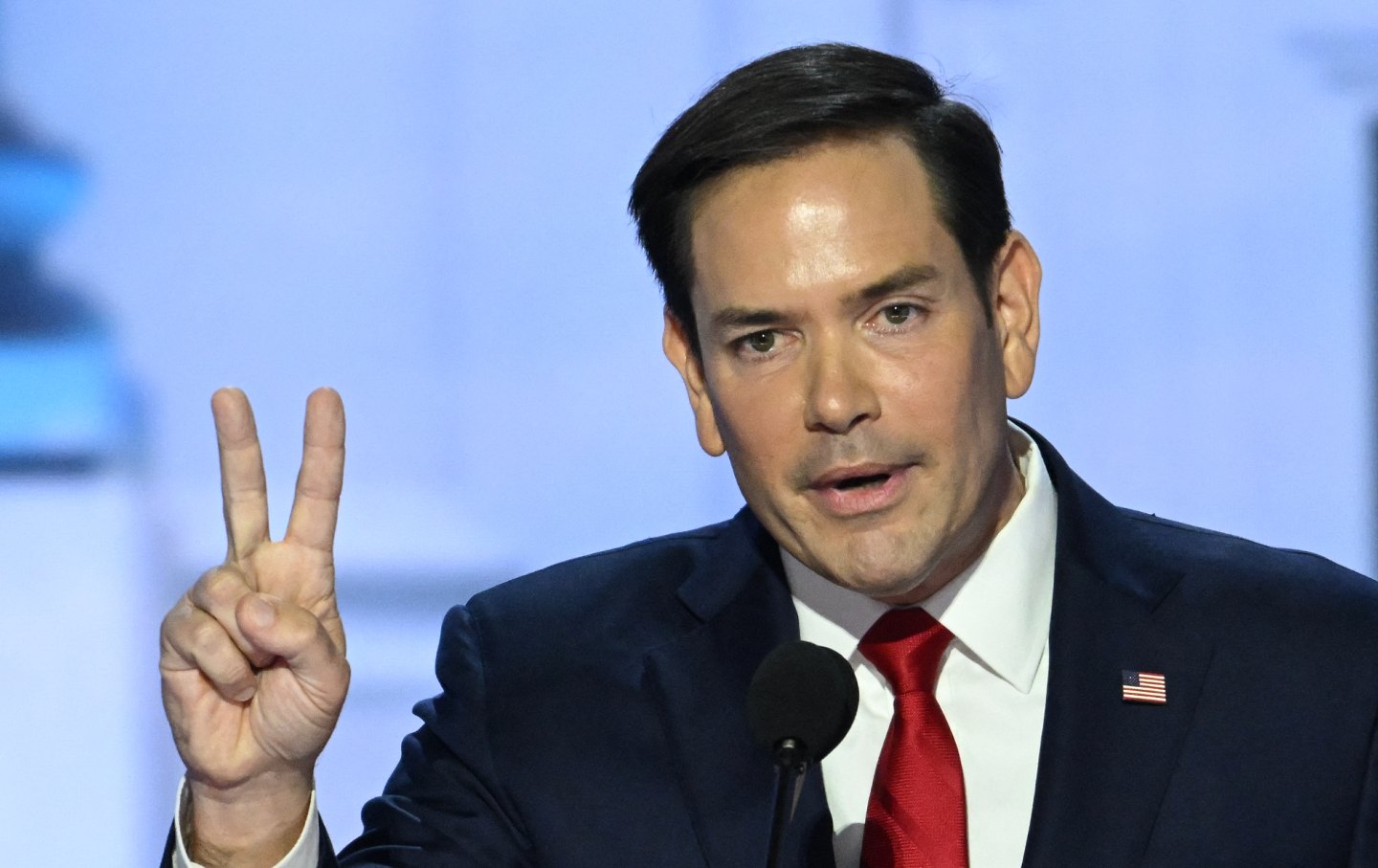
Democrats are falling over themselves to hail Marco Rubio’s nomination as secretary of state.
Aída Chávez
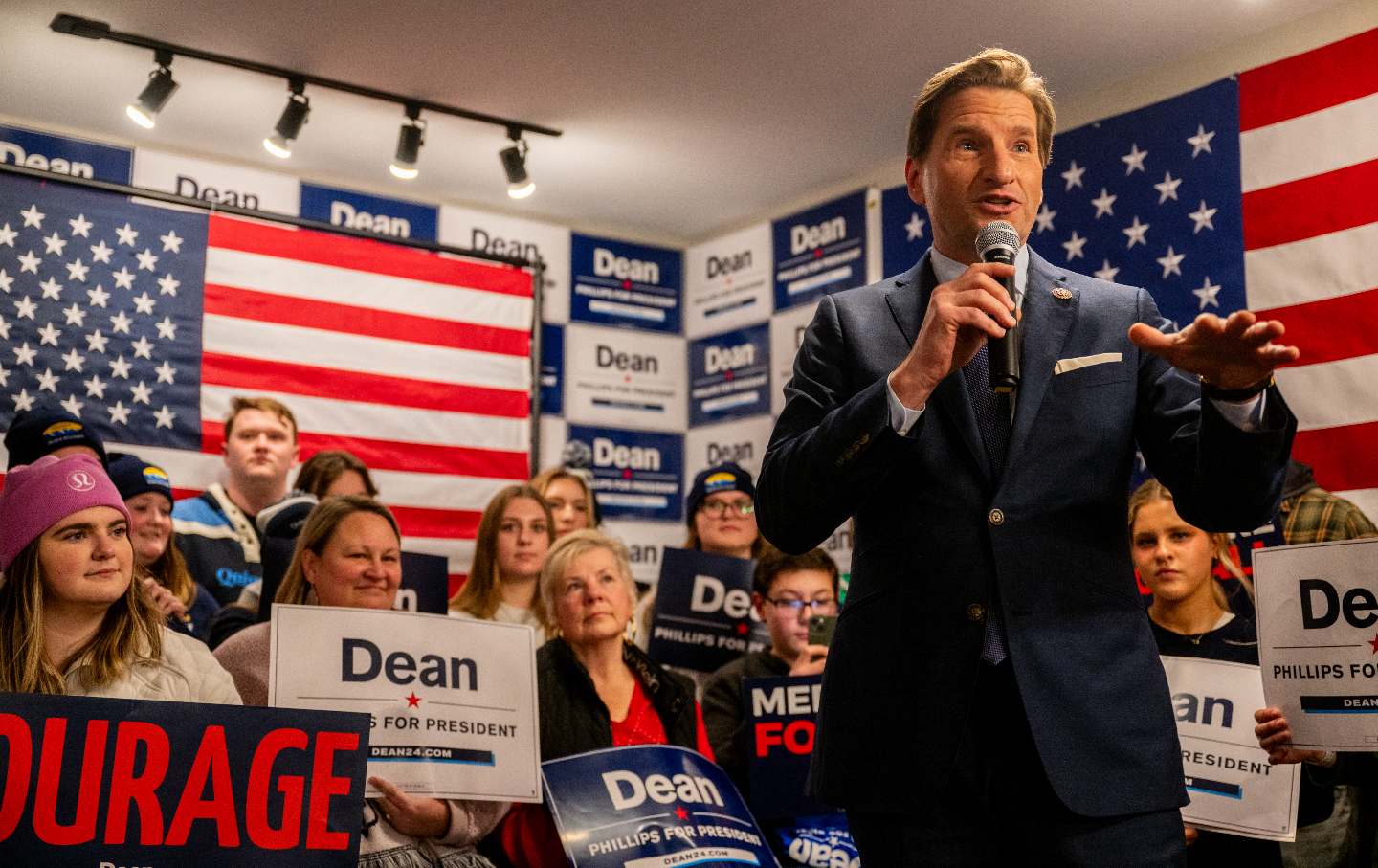
A conversation with former Biden primary challenger Representative Phillips on the election, his run for presidency, and the future of the party.
StudentNation
/
Owen Dahlkamp
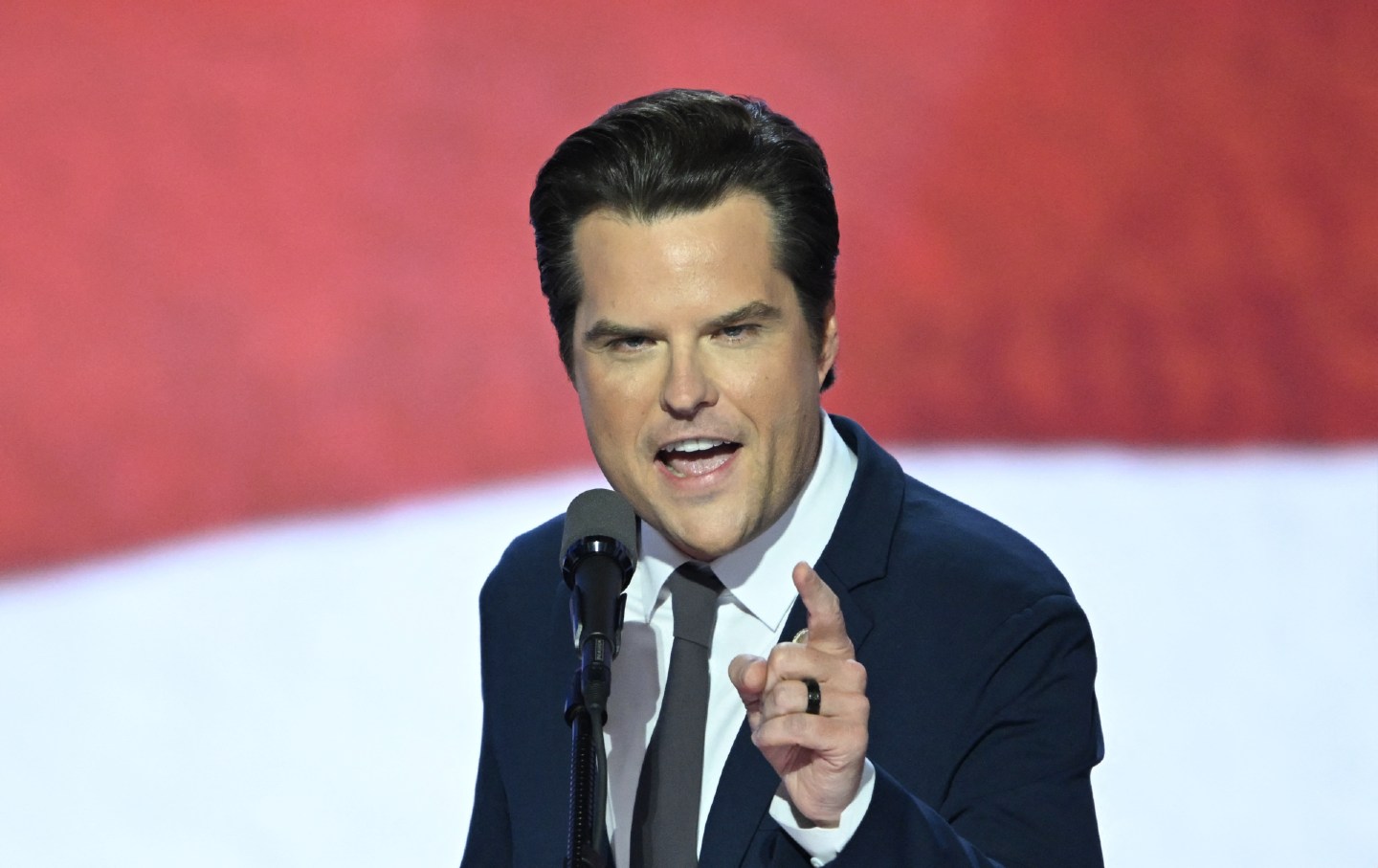
The man is a preposterous pick who will almost certainly do terrible things—just not as terrible as what a savvier prosecutor would do.
Elie Mystal
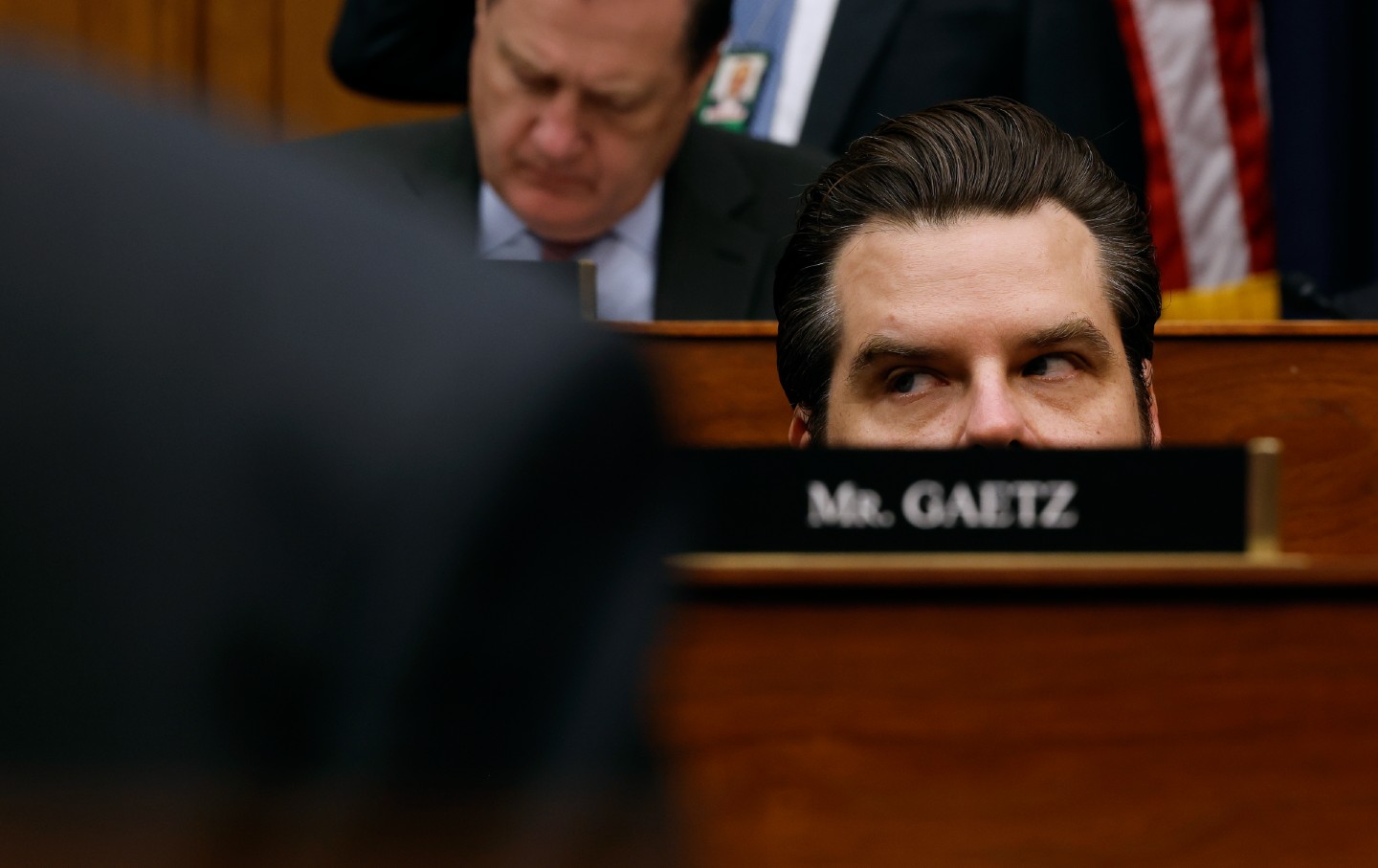
By nominating Matt Gaetz and other dangerous cronies, the president-elect is testing congressional servility.
Jeet Heer

Felecia Phillips Ollie DD (h.c.) is the inspiring leader and founder of The Equality Network LLC (TEN). With a background in coaching, travel, and a career in news, Felecia brings a unique perspective to promoting diversity and inclusion. Holding a Bachelor’s Degree in English/Communications, she is passionate about creating a more inclusive future. From graduating from Mississippi Valley State University to leading initiatives like the Washington State Department of Ecology’s Equal Employment Opportunity Program, Felecia is dedicated to making a positive impact. Join her journey on our blog as she shares insights and leads the charge for equity through The Equality Network.

